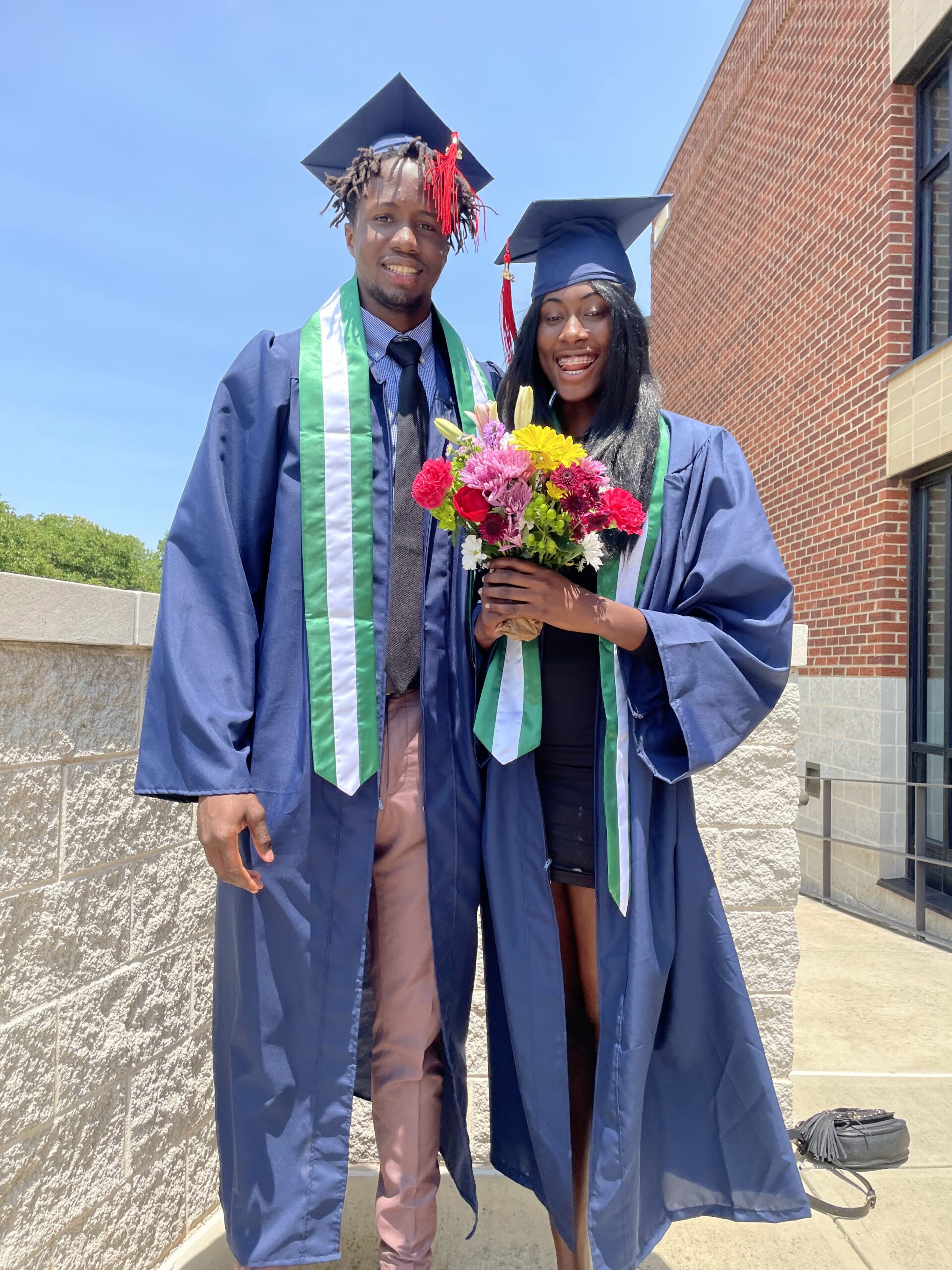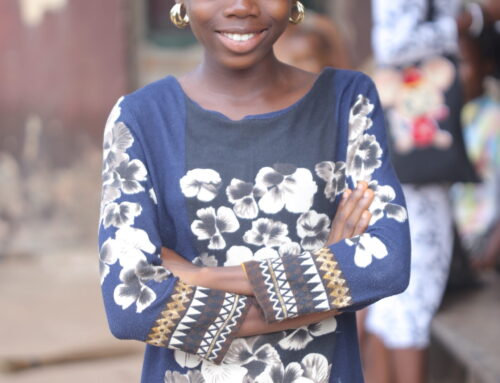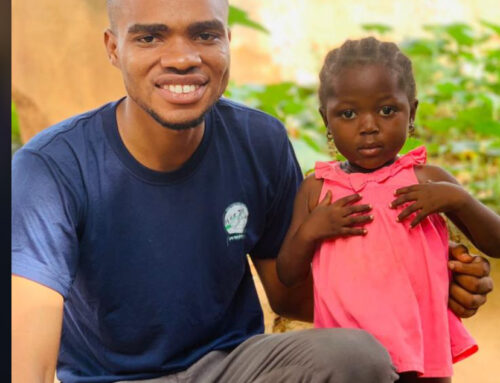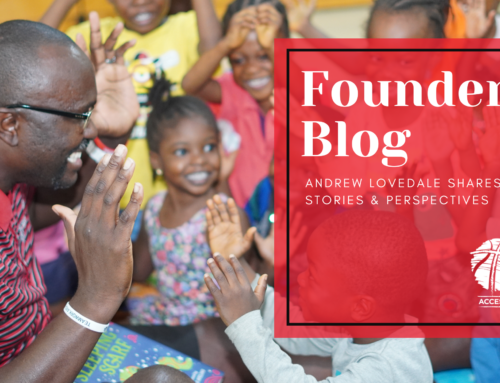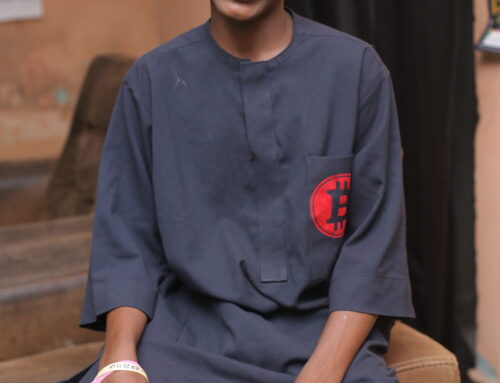My name is Shalom Olugbodi, one of the A2S interns for the summer. Welcome to the second part of our series featuring the interviews with our A2S U.S. Scholars! In our previous post, we introduced you to Blessing Ogbeiwi and Happy Arune, the two high school students studying in the Charlotte area as A2S scholars. If you missed my first blog with their interviews, you can read them here.
I recently had the pleasure of speaking with two exceptional students who are recipients of the A2S Scholars Program, Ifeanyi Ufochukwu and Eseosa Imafidon. These remarkable individuals, now thriving in college, shared their inspiring stories of resilience and determination. Their experiences highlight the power of education. Join me as we delve into their journeys, exploring the challenges they’ve overcome and the dreams they are passionately pursuing.

I didn’t really have a lot of expectations. I knew my decisions would have significant impacts, so I focused on doing the right things. Having my sister Uche there to help me was also reassuring. – Iffy
Interview with Ifeanyi “Iffy” Ufochukwu
Shalom: Can you tell us a little bit about yourself?
Ifeanyi Ufochukwu: My name is Ifeanyi Ufochukwu. I attended Covenant Day School and am now a rising junior at Rice University, where I also play basketball. I am majoring in business with a concentration in finance.
Shalom: Can you tell us a bit about your life and educational background in Nigeria?
Ifeanyi Ufochukwu: I went to school in Benin City and attended the A2S After School Program, where I received meals and additional educational support.
Shalom: How did you get introduced to A2S and the Scholars Program?
Ifeanyi Ufochukwu: My older sister Uche was part of the A2S scholars program and she introduced me to A2S. I began attending the After School Academy when I was 14 and eventually became a part of the scholars program.
Shalom: What were your expectations before moving to the U.S. for your education?
Ifeanyi Ufochukwu: I didn’t really have a lot of expectations. I knew my decisions would have significant impacts, so I focused on doing the right things. Having my sister Uche there to help me was also reassuring.
Shalom: How did you find the academic environment in the U.S. compared to Nigeria?
Ifeanyi Ufochukwu: The U.S. academic system is more productive. In Nigeria, class sizes were large and the teacher-to-student ratio was poor. However, in the U.S. it is easier to learn because of the smaller class sizes and support from staff.
Shalom: What were some of the biggest cultural adjustments you had to make?
Ifeanyi Ufochukwu: I had to learn how to interact with people differently, as the social expectations here are different from back home. In Nigeria, looking people in the eyes during conversation is considered disrespectful, so I had to unlearn that and get used to making eye contact and calling people by their names.
Shalom: What resources or support systems in the U.S. helped you adapt to your new educational environment?
Ifeanyi Ufochukwu: Covenant Day was a huge resource for me. Having access to books, people that support you, was very important. Tutors, online resources, having access to people when you need them is something I do not take for granted. A2S is also a huge support system for me, for example I needed a new computer for school and they provided it for me.
Shalom: What skills or knowledge have you acquired in the U.S. that you feel you wouldn’t have gained in Nigeria?
Ifeanyi Ufochukwu: For me, the most crucial skill I’ve gained is time management. Balancing school and basketball is challenging, and it would not have been possible without learning time management skills.
Shalom: How do you envision contributing to your community or country with the education and experiences you have gained?
Ifeanyi Ufochukwu: I aim to share my knowledge and serve my community. I plan to give back by discussing my experiences and helping in any way I can.
Shalom: Is there anything else about your journey that you would like to share with us?
Ifeanyi Ufochukwu: My journey has not been linear. Whatever has happened in the past and whatever will happen in the future will be okay because I have support. I have A2S, my family, my host family, and God.
Shalom: What message would you like to share with the donors and supporters of the scholars program?
Ifeanyi Ufochukwu: Thank you, I’m here today because of the donors. They made it possible to pursue my dreams and none of this would be possible without them.

Covenant Day provided me with resources that I would not have otherwise. Accommodations for my dyslexia was key to my educational success. My basketball coach, my teammates, my friends at school and A2S were huge support systems for me. – Eseosa
Meet Eseosa Imafidon as she discusses how the Scholars Program has changed her life.
Interview with Eseosa Imafidon
Shalom: Can you tell us a little bit about yourself?
Eseosa Imafidon: My name is Eseosa Imafidon. I am 21 years old, from Benin City and I came to the U.S. at the age of 16 with a scholarship from A2S. I went to Covenant Day School, attended Proctor Academy after high school and I currently attend University of Louisville.
Shalom: Can you tell us a bit about your life and educational background in Nigeria?
Eseosa Imafidon: I attended public school in Benin. I am glad my parents were able to afford it but truthfully they might have not been able to afford college education in Nigeria.
Shalom: How did you get introduced to A2S and the Scholars Program?
Eseosa Imafidon: I was introduced to A2S through their basketball camp. Initially, my parents were hesitant about me attending the camp, but when they saw that I was receiving shoes and I was being fed, they became supportive. During one of the camps, I met Mr. Andrew, he asked me if I would be interested in studying in the U.S. if given the opportunity. I said I would discuss it with my family and they were supportive of the idea.
Shalom: What were your expectations before moving to the U.S. for your education?
Eseosa Imafidon: I didn’t have any specific expectations. I knew I would be surprised by many things because it is a new country.
Shalom: How did you find the academic environment in the U.S. compared to Nigeria?
Eseosa Imafidon: There are higher expectations in the United States, you have to be independent in order to succeed, you can’t be messing around. I had to learn how to use the computer as technology was not a skill that was taught to me in Nigeria.
Shalom: What were some of the biggest cultural adjustments you had to make?
Eseosa Imafidon: The biggest adjustment for me was the weather, particularly the cold. Food was another adjustment for me. School was much harder, and I was diagnosed with dyslexia in the U.S. Having dyslexia definitely made the educational experience harder.
Shalom: What resources or support systems in the U.S. helped you adapt to your new educational environment?
Eseosa Imafidon: Covenant Day provided me with resources that I would not have otherwise. Accommodations for my dyslexia was key to my educational success. My basketball coach, my teammates, my friends at school and A2S were huge support systems for me.
Shalom: What skills or knowledge have you acquired in the U.S. that you feel you wouldn’t have gained in Nigeria?
Eseosa Imafidon: I will say that the technology skills I acquired in the U.S. are far more advanced than what I could have achieved in Nigeria.
Shalom: How do you envision contributing to your community or country with the education and experiences you have gained?
Eseosa Imafidon: I’m returning this summer and have hosted a shoe drive for the A2S basketball camp. I received shoes from A2S when I lived in Nigeria, and now I can give back to them. I’ll also talk to the kids at the basketball camp to share the knowledge I’ve gained.
Shalom: What message would you like to share with the donors and supporters of the scholars program?
Eseosa Imafidon: Thank you to the donors and supporters of the program. They play a significant role in bringing scholars to the U.S. The resources and assistance I’ve received from A2S wouldn’t be possible without their support.
Hearing directly from our A2S Scholars has been an incredibly inspiring experience. I’ve seen through our conversations how determination and support can drive our scholars to overcome obstacles. I am deeply grateful to our scholars for sharing their journeys and to our supporters who make this program possible. Your contributions are not just an investment in education but in the future of these bright young minds. Thank you for joining us in celebrating the achievements and ambitions of our scholars.
Stay connected with A2S for more stories of resilience and success, and consider how you might get involved in supporting our mission. Together, we can continue to empower and uplift the next generation of leaders.

